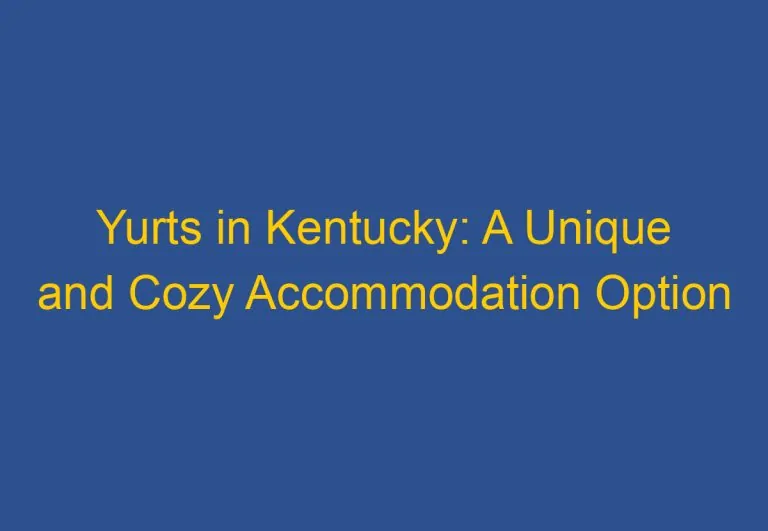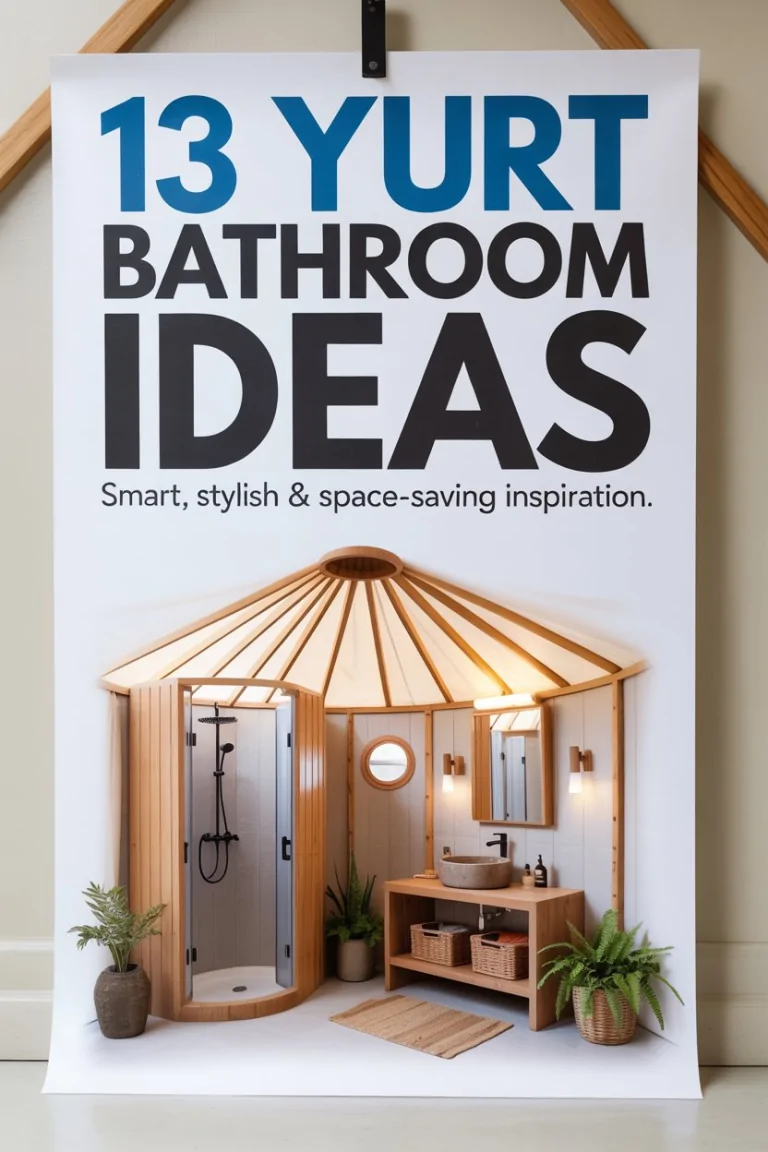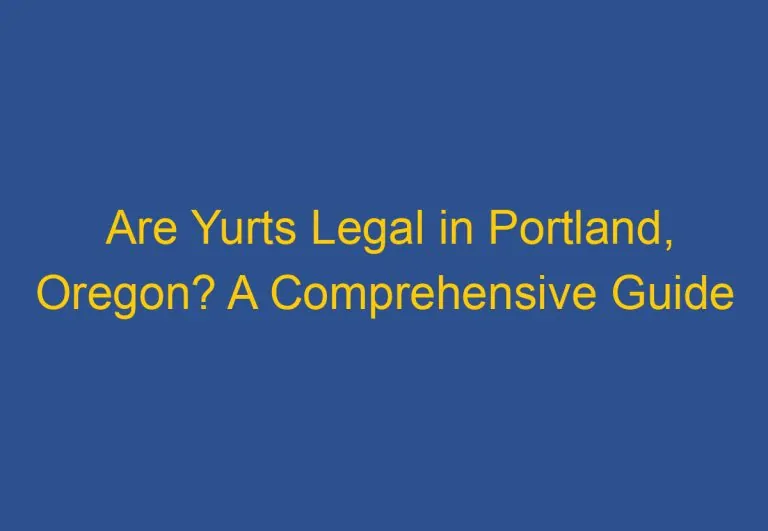Are Yurts Legal in North Carolina? A Comprehensive Guide to Yurt Regulations in the State
Yurts have become increasingly popular as an alternative housing option for those seeking a simpler and more sustainable lifestyle. However, those interested in living in a yurt in North Carolina may be wondering if they are legal in the state. The answer is yes, but there are specific regulations that must be followed.
According to the North Carolina Building Code Council, yurts are classified as temporary structures and are considered tents. As such, they do not require a building permit if they are used for recreational purposes for less than 180 days. However, if the yurt is intended to be used as a permanent residence, it must meet specific building codes and zoning regulations, and the jurisdiction of the land where the yurt will be placed determines the requirements for permits and approvals.
It is important to note that while yurts are legal in North Carolina, there are certain conditions that must be met. Those interested in living in a yurt full-time should do their research and ensure they are following all necessary regulations to avoid any legal issues. With the proper planning and adherence to regulations, a yurt can be a unique and sustainable housing option in North Carolina.
Legality and Regulations for Yurts in North Carolina
Understanding Zoning Regulations
Before building a yurt in North Carolina, it is essential to understand the zoning regulations in the area. Zoning regulations are laws that govern how land can be used and developed in a particular jurisdiction. Yurts are considered temporary structures in North Carolina, and they are subject to zoning regulations. It is important to note that zoning regulations vary from one jurisdiction to another.
In rural areas, zoning regulations may be more relaxed, and yurts may be considered a permissible use of land. However, in urban areas, yurts may not be allowed as a primary residence. It is recommended to contact the local building department to determine if yurts are allowed in a specific area.
Building Codes and Permits
Building codes and permits are also essential considerations when building a yurt in North Carolina. Yurts are considered temporary structures and are subject to building codes and permit requirements. Building codes are a set of regulations that govern the design, construction, and occupancy of buildings. Permits are necessary to ensure that the building meets the minimum standards set by the building codes.
In North Carolina, building codes and permit requirements vary depending on the jurisdiction. It is recommended to contact the local building department to determine the requirements for building a yurt. Building a yurt without the necessary permits can result in fines and legal issues.
Yurt Living as a Permanent Residence
Yurts can be used as a permanent residence in North Carolina, but there are specific regulations that must be followed. Yurts used as a primary residence must meet the same building codes and permit requirements as traditional homes. Yurts must also have a permanent foundation and meet the minimum square footage requirements for a dwelling unit.
It is important to note that yurts may not be allowed in all areas as a primary residence. Zoning regulations may limit the use of yurts as a primary residence in certain areas. It is recommended to contact the local building department to determine if yurts are allowed as a primary residence in a specific area.
In conclusion, building a yurt in North Carolina requires an understanding of zoning regulations, building codes, and permit requirements. Yurts are considered temporary structures and are subject to regulations that vary depending on the jurisdiction. It is recommended to contact the local building department to determine the requirements for building a yurt in a specific area.
Features and Amenities of North Carolina Yurts
Yurts are becoming increasingly popular among vacationers and glampers who want a unique and comfortable experience. North Carolina offers a variety of yurt rentals that provide basic amenities to luxurious features. Here are some of the features and amenities that you can expect from North Carolina yurts.
Comfort and Insulation
North Carolina yurts come with comfortable beds, heating, and air conditioning. Many yurts are also equipped with wood stoves, which provide a rustic and cozy atmosphere. The yurts are well-insulated, which makes them suitable for year-round residence. Additionally, many yurts come with decks that offer stunning mountain views.
Utilities and Services
North Carolina yurts come with basic utilities such as plumbing and electrical services. Many yurts also come with kitchenettes or full kitchens, which include a fridge, BBQ, and other amenities. Some yurts even offer Wi-Fi and satellite TV, which provide entertainment and connectivity.
Recreational Activities and Locations
North Carolina yurts are situated in scenic locations that offer a variety of recreational activities. For example, many yurts are located near hiking trails, waterfalls, and scenic roads. Pisgah National Forest, Great Smoky Mountains National Park, and Nantahala National Forest are some of the popular locations where you can find North Carolina yurts. Additionally, many yurts are located near rivers and creeks, which offer fishing, boating, and swimming opportunities.
Dupont Yurts in Hendersonville offer central heat and air, washers and dryers, and fire pits. Sky Ridge Yurts in Bryson City offer luxurious features like hot tubs and decks with mountain views. Namaste Yurt in West Asheville is located in the River Arts District and is close to attractions like Biltmore and the Blue Ridge Parkway.
Ratings and Reviews
Many North Carolina yurt rentals have high ratings and positive reviews from previous guests. For example, Robbinsville Yurts in Marion have a 4.9-star rating and offer comfortable amenities like a dome skylight and a platform bed. Mars Hill Yurts in Waynesville have a 4.8-star rating and offer a peaceful and scenic location.
In conclusion, North Carolina yurts offer a unique and comfortable experience for vacationers and glampers. Whether you’re looking for a basic or luxurious yurt rental, North Carolina has a variety of options that cater to your needs.
Frequently Asked Questions
What are the zoning regulations for yurts in North Carolina?
Yurts are legal in North Carolina, but with certain conditions. Zoning regulations for yurts vary by county, so it is important to check with local authorities before investing in a yurt. In general, yurts are often classified as temporary structures, and may be subject to zoning regulations that limit their use to certain areas or require special permits.
Is it possible to reside in a yurt permanently in North Carolina?
It is possible to reside in a yurt permanently in North Carolina, but it may require a special permit. In order to obtain a permit, yurt dwellers may need to demonstrate that their yurt meets certain safety and building code requirements.
Do yurt dwellings require building permits in North Carolina?
Yes, yurt dwellings typically require building permits in North Carolina. The specific requirements for obtaining a permit may vary by county, so it is important to check with local authorities before beginning construction.
Are there specific counties in North Carolina that are yurt-friendly?
Some counties in North Carolina may be more yurt-friendly than others. For example, Buncombe County has a specific ordinance that allows for the construction of yurts as permanent dwellings, while other counties may require special permits or have stricter zoning regulations.
What are the building code requirements for yurts in North Carolina?
Building code requirements for yurts in North Carolina may vary depending on the specific use of the yurt, such as whether it will be used as a permanent dwelling or a temporary structure. In general, yurts must meet certain safety standards, such as those related to fire safety and structural integrity.
How does North Carolina law classify yurts in terms of real estate?
North Carolina law classifies yurts as personal property, rather than real estate. This means that yurts are subject to personal property tax, rather than property tax on real estate.












